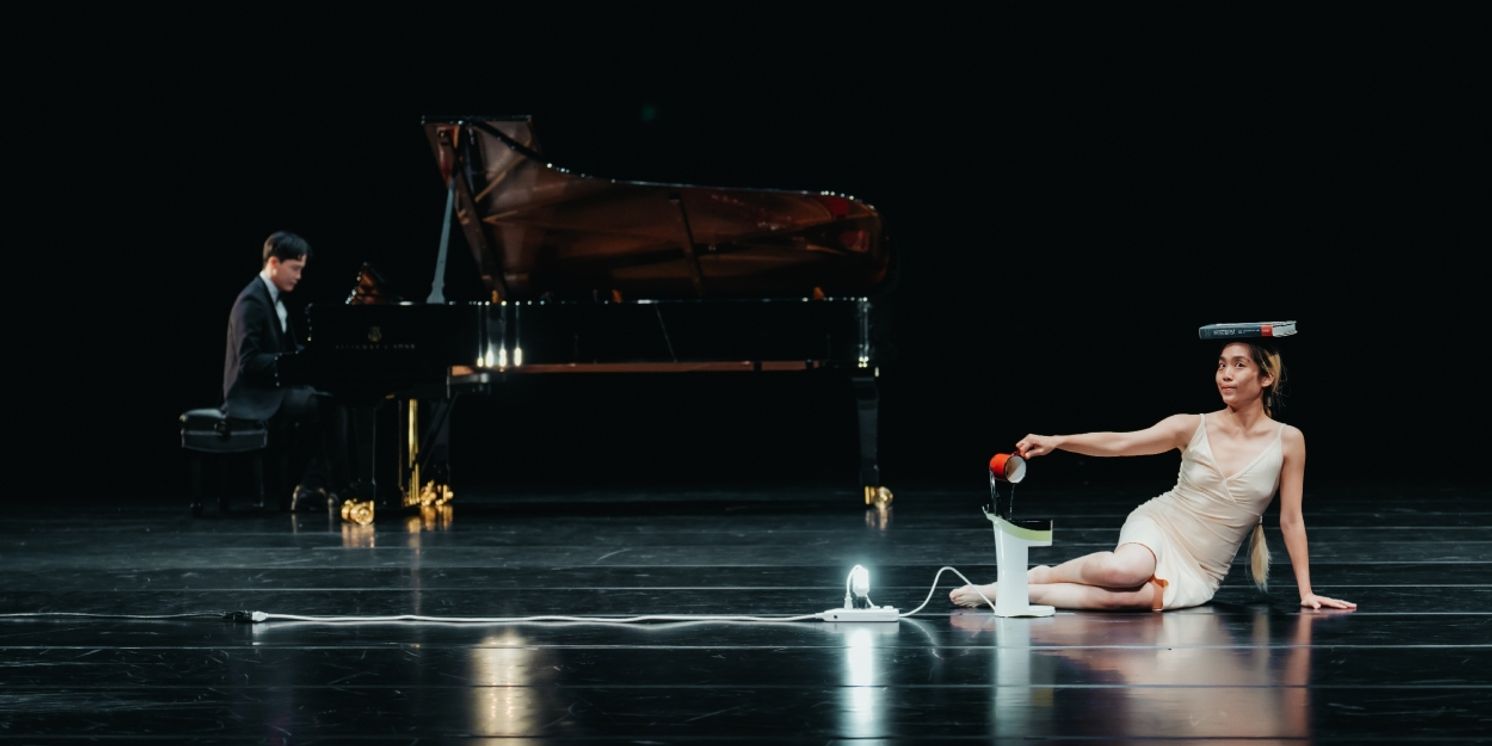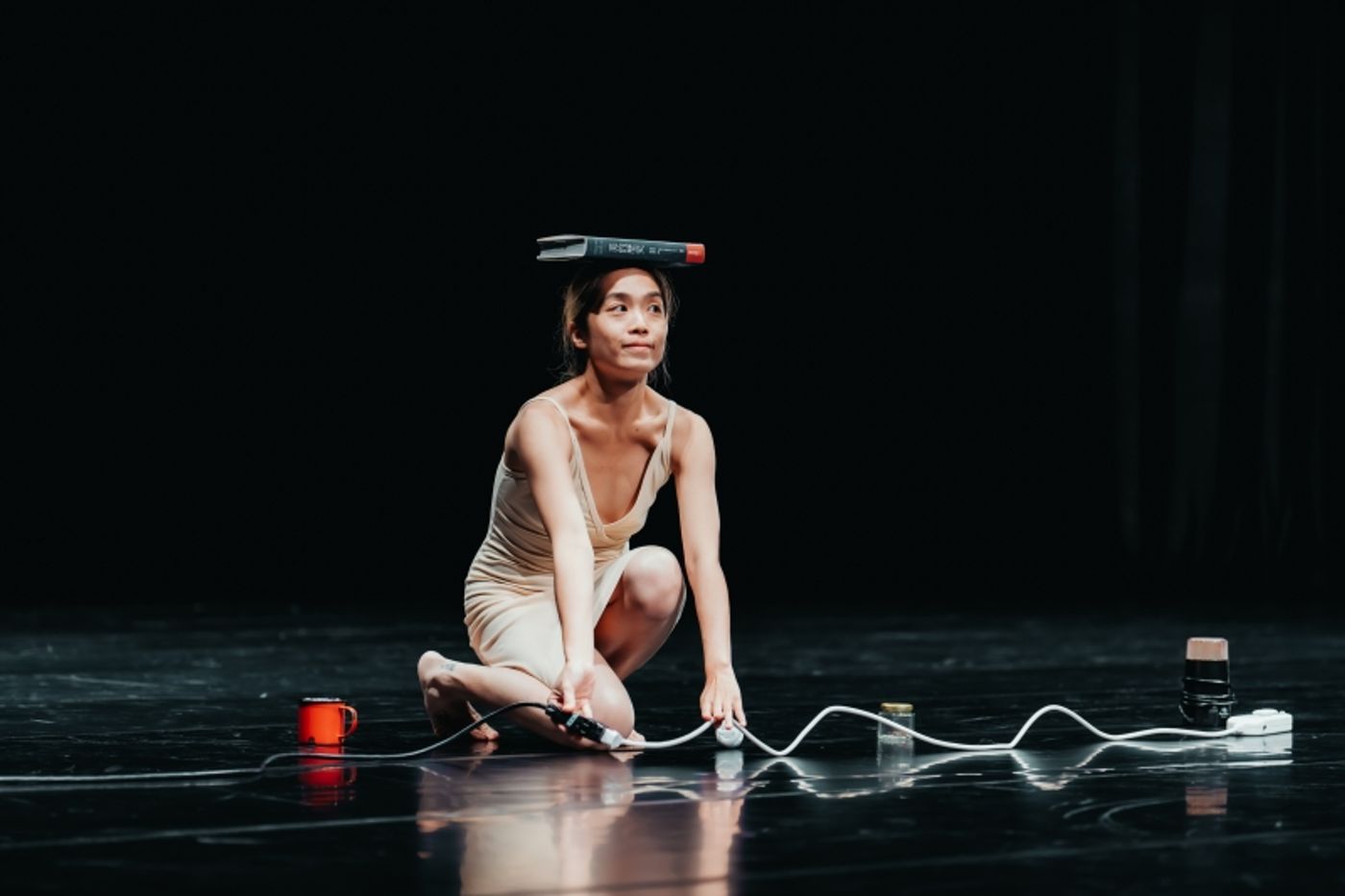Review: CHANGE TEMPO, DANCE UMBRELLA, The Place
As is often the case with experimental work: did it convey?

![]() Dance Umbrella presented their international double-bill Change Tempo at The Place. The bill was part of the bigger Dance Umbrella Festival (45 years and counting!) programme for 2023, running until 31 October at numerous venues.
Dance Umbrella presented their international double-bill Change Tempo at The Place. The bill was part of the bigger Dance Umbrella Festival (45 years and counting!) programme for 2023, running until 31 October at numerous venues.
The two featured artists are SU PinWen and Alexandre Fandard.
SU PinWen presents Girl’s Notes, a work addressing notions of gender featuring (on-stage) pianist Lin Mai-ke who plays a full blown "Nocturnes" by Chopin concert for the duration. The main inspiration for the piece is a 1984, Taiwanese text called The History of Beauty that suggests how girls should behave in order to become 'correct' women. The main advice = "act cute".
This to me, is the quintessential Dance Umbrella kind of piece. Avant-garde, abstract and absolutely pushing boundaries concerning what's considered dance.
PinWen enters the space in a simple, nude bodycon dress with a wheelie suitcase and a book on his head. The book stays, the dress soon goes, and the suitcase is unpacked to reveal the instigating props for the evening: coffee grinder, coffee maker, vibrator, microphone and book.

An extension lead is presented from the wings and off we go. He uses each machine for its purpose (minus the vibrator) and the whole time keeps his eyes fixed on the audience, maintains a wry smile and offers movement that doesn't really relate…well how could it?! On all fours sipping coffee, the splits because why not? And the vibrator section seeming to physicalise the specific actions the appendage is offering. The microphone/book moment hears PinWen reading out loud that's overtaken by a distorted, male voice somewhere in the ether as he vanishes within a slow black-out.
When he returns he offers a hip rotation focused dance that descends into the (almost) box splits whilst his arms are uncomfortably placed behind his head holding onto a piece of black material. The end result seems physically uncomfortable, and this is the first instance the book falls off his head. PinWen seems visibly distressed by this fact, and the book is replaced immediately.
The last few minutes see him on the spot distorting his face and becoming upset, but then repeatedly finding composure before slowly walking backwards and disappearing into the darkness as the piece concludes.
What to take away? I definitely felt in the presence of an artist committed to their work, and someone posing questions that usurp current accepted frameworks. But as is often the case with experimental work: did it convey? I'm not convinced, but that's also fine, as new ways of working need time to take root and flourish.
Alexandre Fandard’s Comme un symbole discusses the image and notion of marginalised youth, a global issue, but currently prevalent in France. The overall piece offers strong cinematic moments, but in general falls short; feeling a little already done.
Fandard brings energy and articulation to the aggressive, narrative-laden, gestural movement, but relies too heavily on the pre-defined visual connotations, related environments and high-end lighting design.
Midway through, a huge gush of dry ice is released from the back of the stage and soon envelops the auditorium. This technical trick works well as it makes the observer aware of how it might feel to be submerged in the depths of a riot or protest. At this point Fandard is repeatedly jumping on the spot whilst turning - no one can deny the atmosphere he conjures.
He also has great taste in house music, but a clubbing environment with strobe lighting isn't new to anyone.
I'd hoped for more, and tried to read something into the movement aspect of a form of reversing from the aggressive attack, or when he communicates flailing and trying to reboot. But it wasn't easily achieved.
The close saw Fandard gasping for breath, developing into a form of gagging which made me contemplate the idea of disenfranchised youth struggling to communicate because they don't have either the means or opportunities, but the rendition of a German song (a cappella) that finally brought the work to an end felt properly random.
Change Tempo's mission is to introduce "transformational works" and challenge "cultural biases." I'm not sure this happened for me, but I'm a supporter of the intention and the platform for people to try regardless. Onwards.
Dance Umbrella Festival runs at various venues until 31 October
Photo Credit: Wei Wu-Ying
Reader Reviews
Videos

